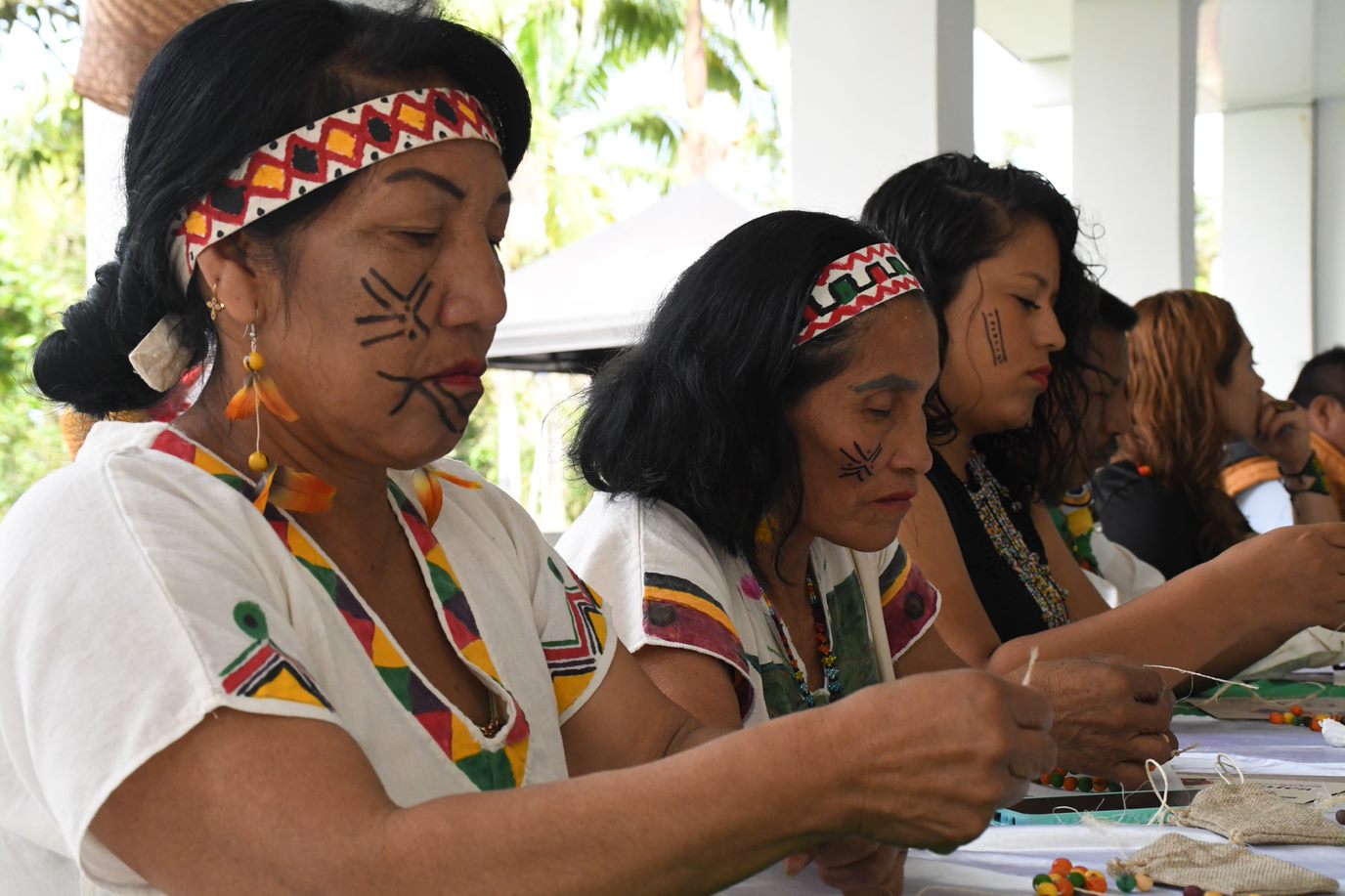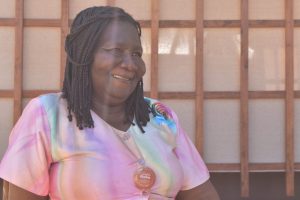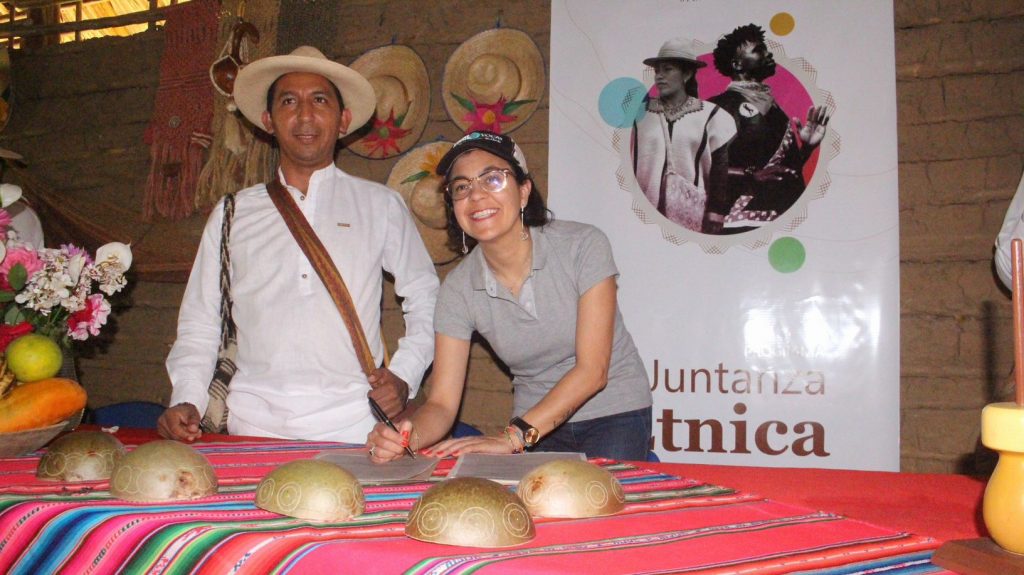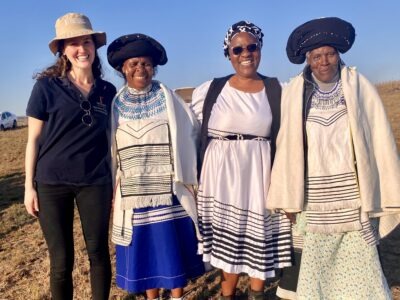
Ethnic inclusion directly impacts Colombia’s sustainable development. Studies have shown that countries can increase their GDP by US$2.1 trillion every year by closing racial income gaps, while companies who commit to diversity are 152 percent more likely to innovate and see returns from their investment. For Colombia, whose population is 12.8 percent Afro-Colombian and indigenous, the returns from increased ethnic inclusion would be substantial.
Since 2011, USAID and ACDI/VOCA have been working with and for Colombia’s ethnic communities to guarantee their recognition, inclusion, and empowerment. The most recent manifestation of this commitment began on December 1, 2021, with the launch of a five-year, US$60 million initiative called the Indigenous Peoples and Afro-Colombian Empowerment Activity (IPACE). IPACE partners directly with ethnic-led national and local organizations to strengthen their existing initiatives and elevate their priorities on the national agenda to close gaps in racial disparity and promote ethnic pride resulting in a more inclusive Colombia.
IPACE’s Goals
Ethnic chapter of the Peace Accord: IPACE works with institutions and organizations in implementing and monitoring progress on the 2016 Peace Accord’s ethnic chapter to ensure an inclusive peacebuilding process in Colombia.
Self-Governance and Institutional Strengthening: IPACE builds ethnic organizations and traditional authorities’ capacities for advocacy, leadership, self-governance, and natural resource management. The activity also support institutions in designing, updating, and/or implementing public policies that serve ethnic communities.
Sustainable Economic Development: IPACE helps ethnic communities increase their self-sufficiency through environmentally friendly productive projects and food sovereignty initiatives. It also provides training and facilitates job placements to improve ethnic-led entrepreneurial ventures and increase economic and social inclusion.

Recognition of Cultural Diversity: IPACE is committed to safeguarding ethnic cultural heritage and promoting cultural economies, while respecting ancestral practices.
Risk Prevention and Response: IPACE works directly with communities to prevent and mitigate risks by updating municipal disaster risk management and development plans and creating emergency funds for partner organizations. It also provides emergency services in response to crises.
Communications for Transformation: IPACE leverages strategic communications to increase recognition and appreciation of the contributions made by indigenous and Afro-Colombian communities to Colombia’s development.
Gender and Intersectionality: IPACE applies a transversal gender and intersectionality lens to all of its work, empowering women, youth, LGBTIQ+, and diverse populations to overcome the unique obstacles they face.
What makes IPACE unique is its commitment to a locally led and locally owned approach that comes to life by working with and through 10 partner organizations, four of whom are indigenous (CRIC, CTC, ONIC, OPIAC) and six of whom are Afro-Colombian (AFRODES, CIMARRÓN, COCOMACIA, CONPA, CNOA, and PCN). As true partners, co-creators, and co-collaborators, the ethnic organizations will hold critical decision-making power, resulting in a program made by and for ethnic communities.
IPACE’s Partners
Each of IPACE’ partners brings a unique perspective and experience to the table. All four of its indigenous partner organizations contribute significant expertise in environmental management and biodiversity conservation (a new component of this iteration of the Activity) as well as political advocacy, together covering a large swath of Colombia’s national territory.
1. OPIAC is the only ethnic organization operating at large in the Amazon, the world’s most biodiverse region in the world and home to 56 indigenous groups in Colombia alone.
2. CTC is the umbrella organization for four different indigenous communities living in the Sierra Nevada de Santa Marta—the highest coastal mountain range in the world and known as one of the world’s lungs—home to diverse cultures and biomes.
3. CRIC operates exclusively in the southwestern department of Cauca, one of the few regions covered by IPACE that is home to both a large Afro-Colombian population as well as indigenous population.
4. ONIC and CRIC have a long-standing history of political advocacy. ONIC’s national scope has helped it to position several of its members as congresspeople at the federal level, serving as an important asset for IPACE’s work in institutional strengthening and public policy.
5. AFRODES works with people displaced as a result of the armed conflict, many of whom sought refuge in cities who could offer more comprehensive services.
6. CIMARRÓN specializes in topics of racism in education hiring and practices, among others; in general, racial discrimination becomes apparent when diverse groups inhabit the same spaces, which occurs more in cities.
7. CNOA offers a unique expertise regarding diversity within Afro-Colombian communities, specifically creating inclusive spaces for women, youth, and LGBTIQ+ populations.
8. COCOMACIA is IPACE’s only Afro-Colombian partner who shares indigenous communities’ expertise in environmental governance and conservation as their territory covers part of the Pacific rainforest.
9. PCN’s work is concentrated on implementing land rights and titling for Afro-Colombian communities. There are some instances of collective land titling in urban areas, but it is mostly found in rural contexts.
10. CONPA is a collective of Afro-Colombian organizations whose entire focus is on implementing the Peace Accord, including the implementing the ethnic chapter.
IPACE’s Vision
IPACE’s locally led approach requires a strong, unified alliance with all 10 partner organizations based on a common vision. The Activity began this process by co-creating a Spanish name for the Activity, Juntanza Étnica, which represents the unification of ethnic peoples’ visions, struggles, work, and collective dreams. Juntanza will come to life in 29 municipalities that stretch clear across the country from the Amazon rainforest to the Andean mountains to the Pacific and Caribbean coasts. With and through our partner organizations, IPACE will engage local ethnic authorities, organizations, and initiatives in its shared vision of inclusion, self-determination, and prosperity for Colombia’s Afro-Colombian and indigenous peoples.
In October 2022, IPACE signed its first subcontract with the Territorial Council of Cabildos (CTC) in Valledupar, marking the formal commencement of the Activity’s partnership with the four indigenous groups of the Sierra Nevada de Santa Marta (Wiwa, Kogui, Arhuaco, and Kankuamo).

“This agreement with Juntanza Étnica is a way to continue walking and building this path that unites us in search of harmony, peace, and the prosperity of our peoples.”
–Iván Lúquez, representative of the Kankuamo peoples, of the partnership with IPACE
Learn more about IPACE here.
Learn more about our work in Colombia here.







